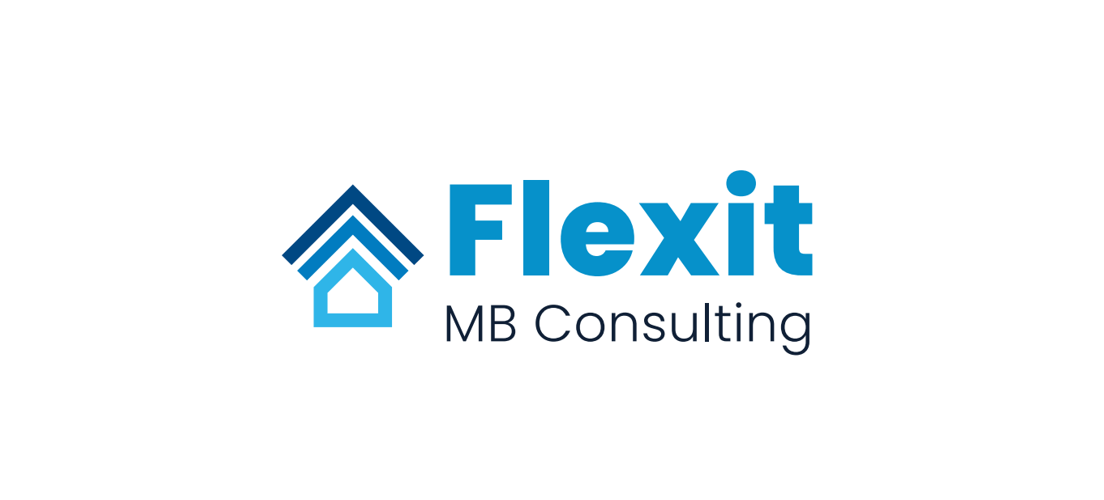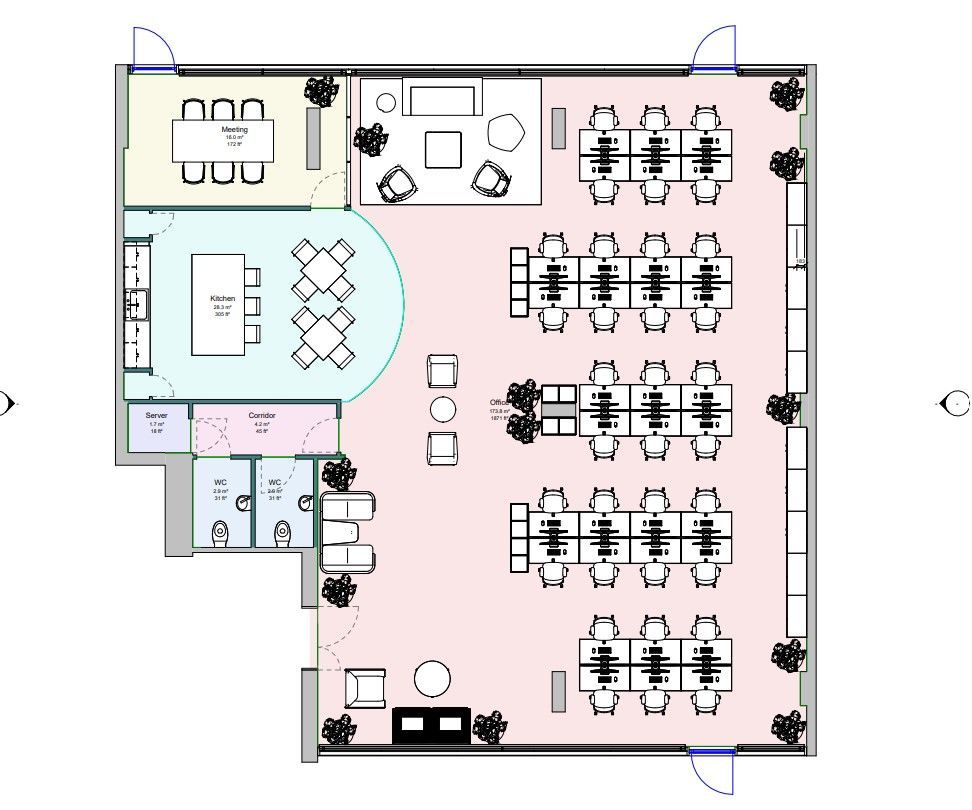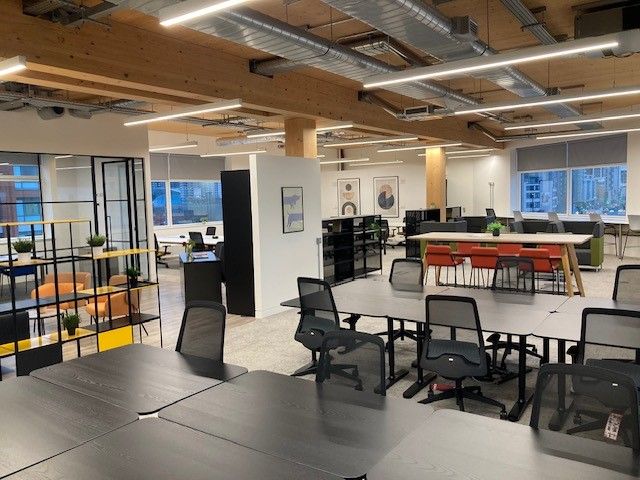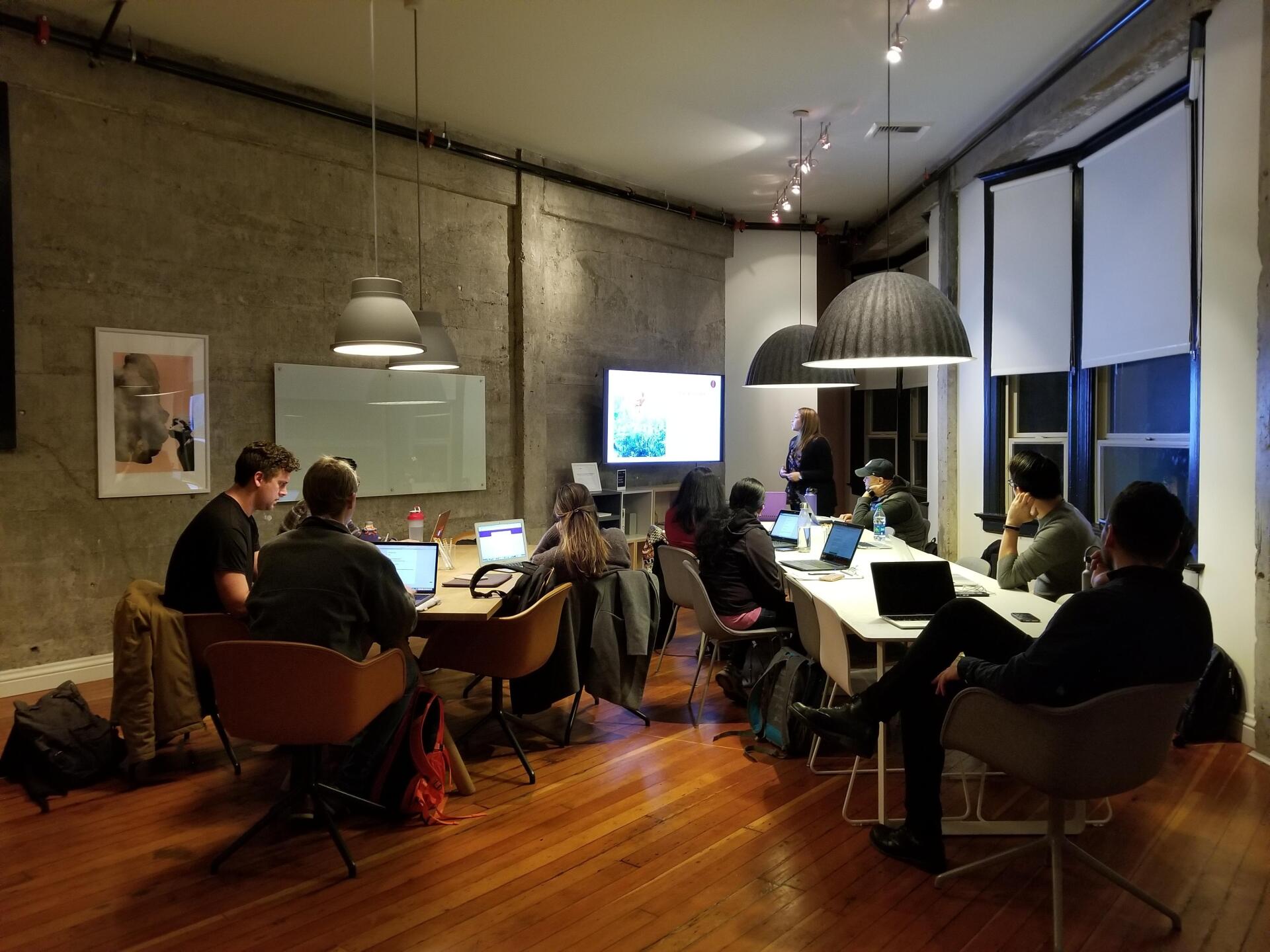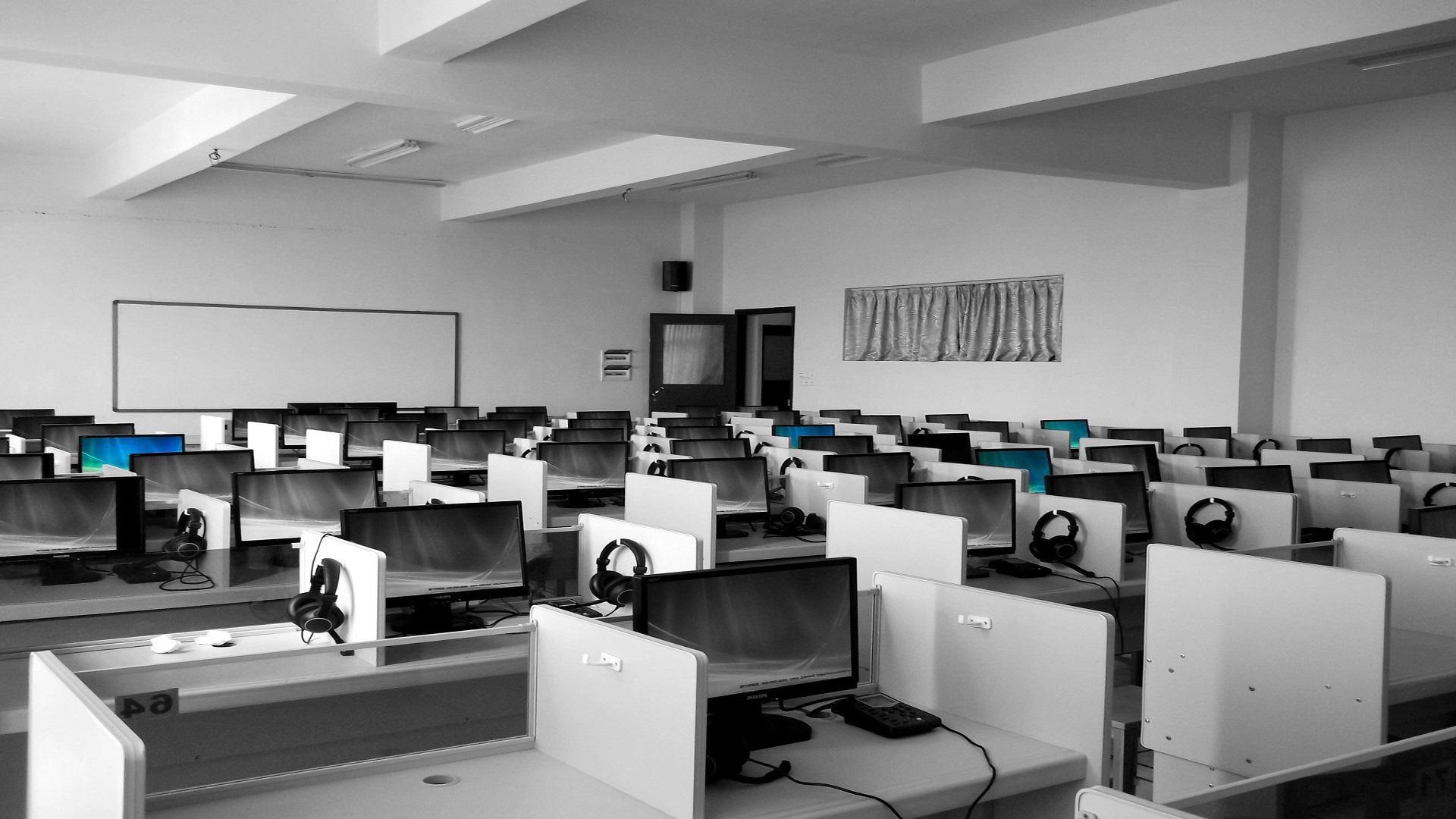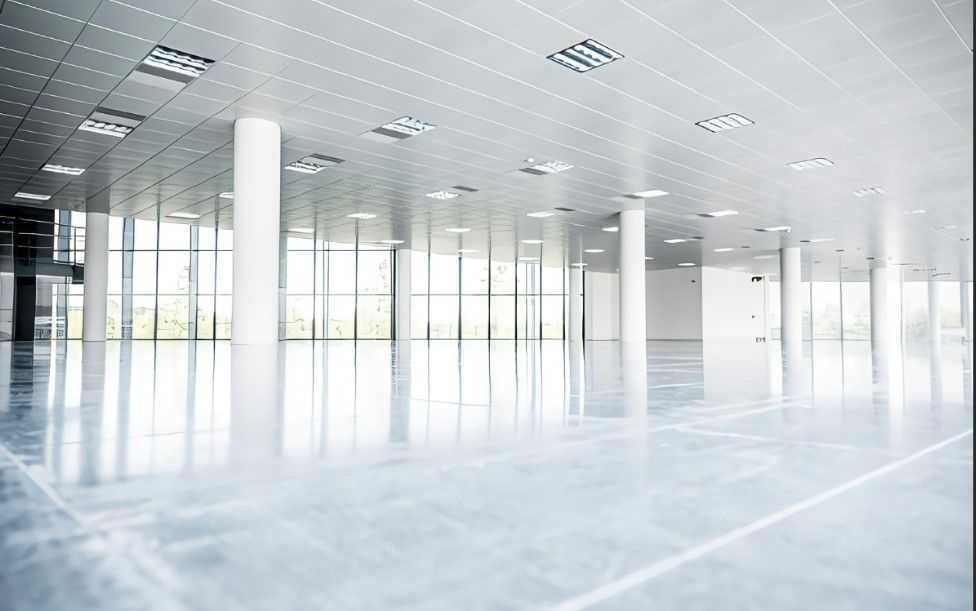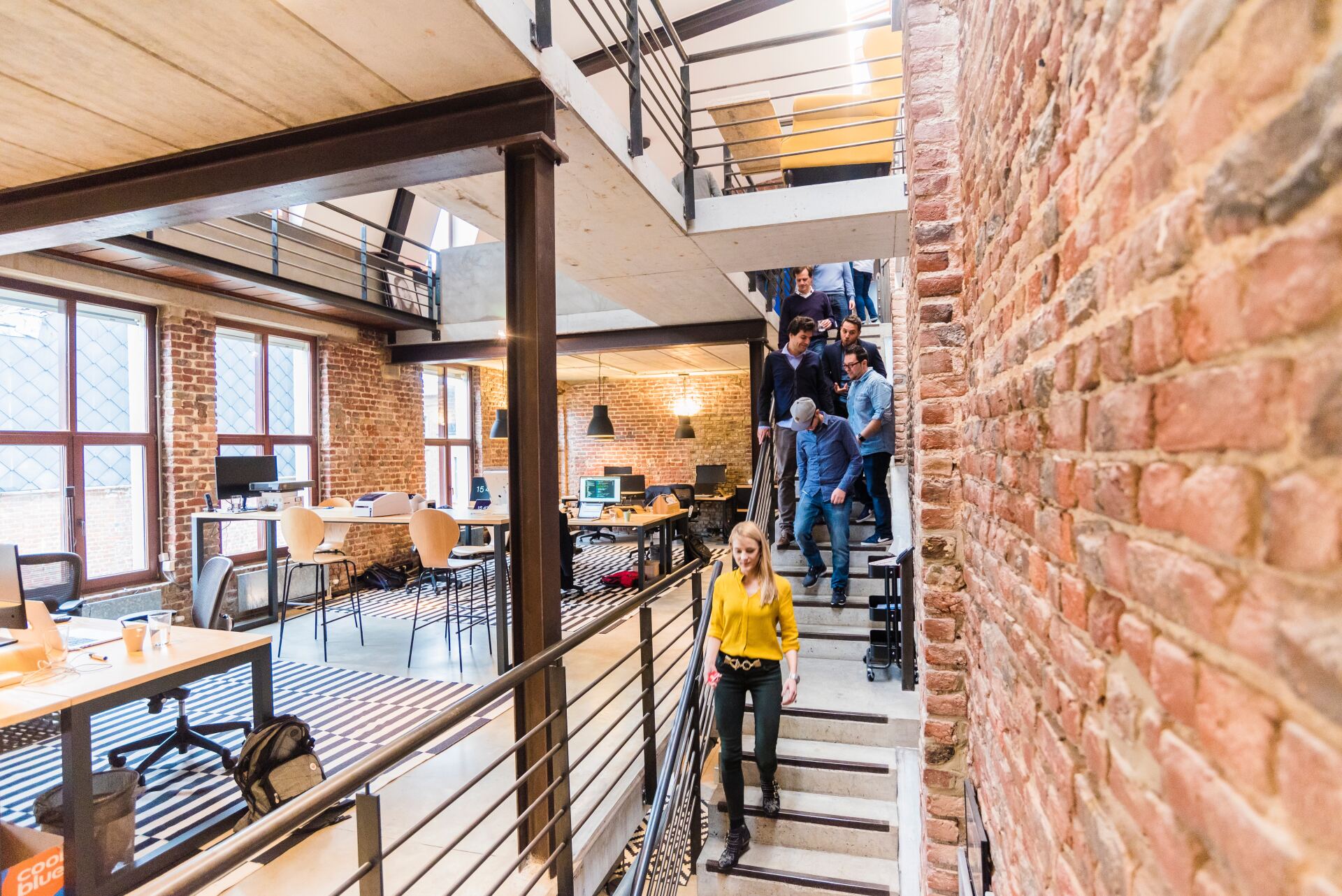The office is still King
The benefits of having an office HQ - its not just about brand presence and great coffee.
CEO's and business leaders are constantly plagued with today's challenge of balancing the financial savings of hybrid working vs the need to create a thriving environment for your people. Are you?

The demand for office space is back to pre-pandemic levels and the key driver is people centric metrics. You don't need to be in the office full-time to reap the benefits of having one.
More and more SME's and medium sized businesses (30-60 employees) are choosing managed offices over long term leasing and here's why.
- Team Culture and Collaboration:
- Face-to-Face Interaction: Being in the same physical space allows for spontaneous and informal interactions, fostering stronger relationships among team members. These interactions can lead to better communication and collaboration.
- Team Building: Office environments often provide opportunities for team-building activities, workshops, and social gatherings, which can strengthen team cohesion and camaraderie.
- Immediate Feedback: In an office, you can easily walk over to a colleague's desk for quick discussions, brainstorming sessions, or to provide immediate feedback, which can speed up decision-making and project execution.
- Recruiting Top Talent:
- Professional Image: Maintaining an office space can project a professional image to potential employees. It can signal that the company is stable and invested in providing a conducive work environment.
- Access to a Larger Talent Pool: Having an office allows companies to tap into local talent and recruit individuals who prefer or require an office setting. This expands the pool of potential hires.
- Onboarding and Training: In-person onboarding and training sessions can be more effective, allowing new employees to acclimate to the company culture and build relationships with colleagues more easily.
- Wellbeing and Work-Life Balance:
- Separation of Work and Home: Working from an office provides a clear separation between work and personal life, reducing the risk of burnout and promoting work-life balance.
- Ergonomic Workspaces: Offices are often equipped with ergonomic furniture and equipment, which can contribute to better physical health and comfort for employees.
- Routine and Structure: Office work often follows a structured schedule, which can help employees establish routines and maintain a healthier work-life balance.
- Mental Health Support: Some offices offer mental health support and wellness programs to help employees manage stress and maintain their mental wellbeing.
- Networking Opportunities:
- Industry Events and Conferences: Being in an office location can provide access to industry events, conferences, and seminars that can enhance professional development and networking opportunities.
- Professional Associations: Employees working from an office can join local professional associations, further expanding their networks and staying updated on industry trends.
- Access to Resources and Technology:
- Specialized Equipment: Certain industries require specialized equipment or facilities that are typically found in office environments. Having access to such resources can be crucial for productivity and innovation.
- Stable Internet and Infrastructure: Offices are equipped with stable internet connections and IT support, reducing technical disruptions and ensuring efficient work.
It's important to note that the benefits of working from an office may vary depending on the nature of the job, industry, and individual preferences. Many companies are adopting hybrid work models that allow employees to enjoy a balance between office and remote work to harness the advantages of both approaches.
Flexit works side by side with business leaders to source the best office options for their needs and budget. Don't sit on a non-productive half empty office, find a solutions that ticks all the boxes and take control of your real estate.
